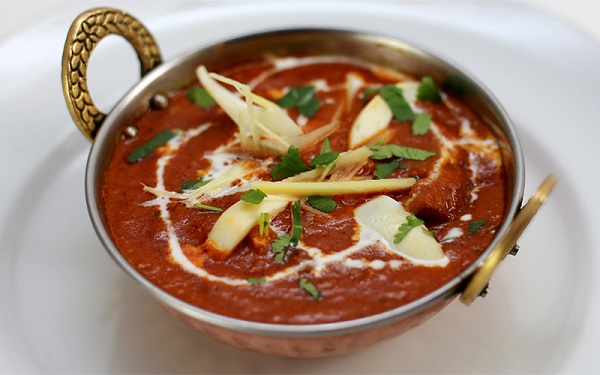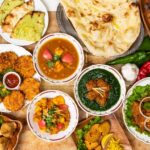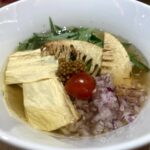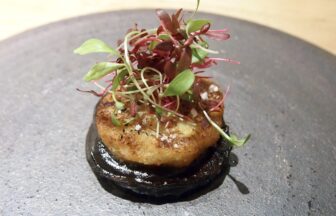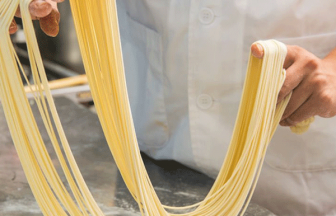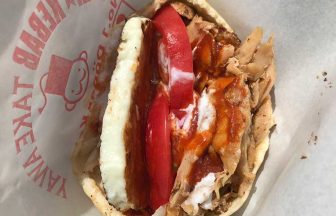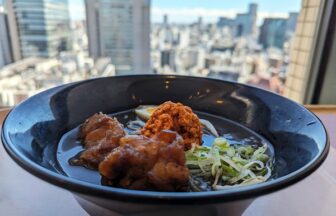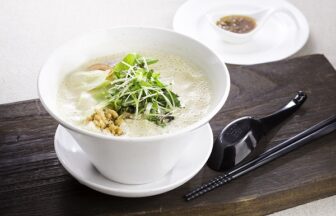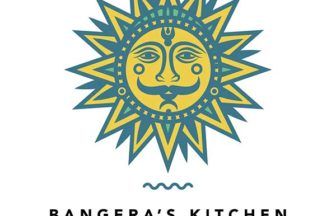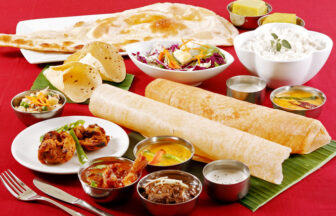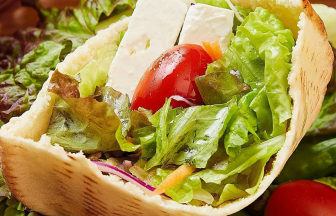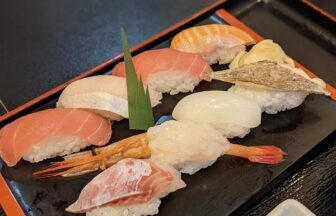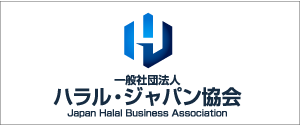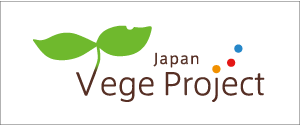All-you-can-eat lunch buffet with a variety of 15 items to chose from, one of thr best deals in the center of Tokyo.
Nirvanam is a South Indian restaurant that has branches mainly in Tokyo. Nirvanam means “bliss,” the highest state of satisfaction and happiness in Saskrit and at Nirvanam they are striving to achieve that by providing you appropriate ambience, service, and the taste. They offer a variety of menus from 5 provinces in South India, including Kerala province at seashore of Arabian sea to Tamil Nadu province at the bay of Bengal. Nivanam is a well known restaurant on the review sites such as the leading ranking site “tabelog”, and has been awarded in the “top100 best curry restaurants” every year since 2009.
One of the reasons why they are so popular is because they have more than100 authentic items on the menu created with fragrant whole spice and unique cooking methods from each region, ranging from Indian signature street food to the traditional South Indian cuisine. Masala dosa is one of the signature South Indian dishes, which is a thin rice crape with potatoes and onions.
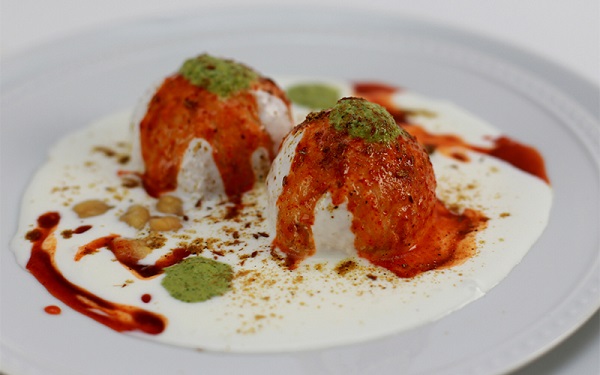
DAHI BHALLE
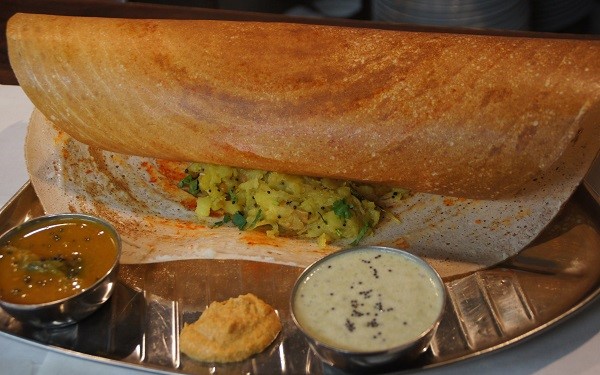
MASALA DOSA
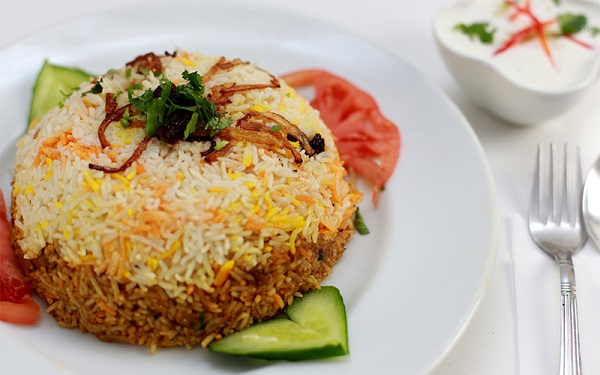
CHICKEN BIRYANI
Nirvanam is well known for their great lunch buffet. It is all-you-can-eat buffet that comes with more than 10 items for a very reasonable price of 1200yen, which is a great deal and hard to find in the center of Tokyo. On the day of interview, there were about 15 items such as mutton biriyani, dosa, bean soup with sambal chill sauce, and mashed-bean doughnut called uddin vada.
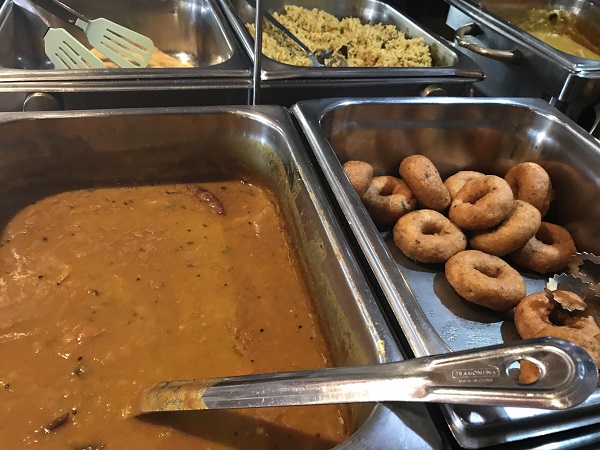
SAMBAL AND BEAN DOUGHNUTS
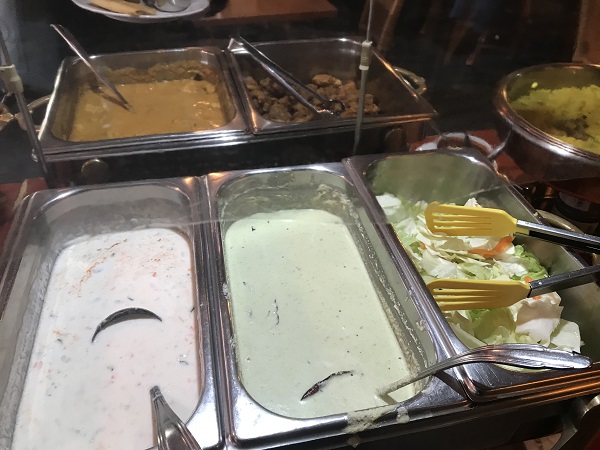
LUNCH BUFFET
Deep-fried food and biriyani go very well with yogurt sauce made with vegetables.
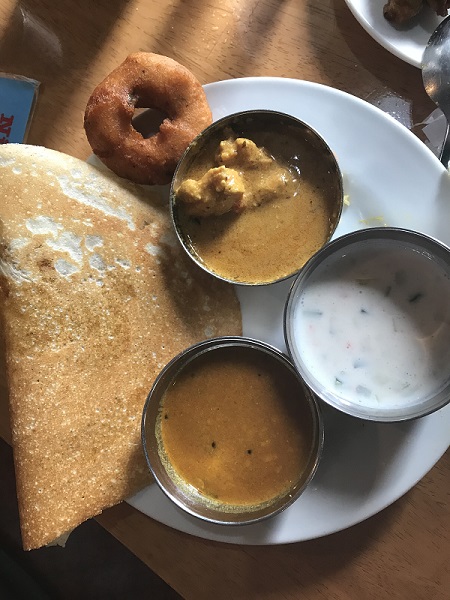
DOSA, BEAN DOUGHNUT, MUSTARD CHICKEN CURRY, RAITA
You can help yourself to the popular street food pani puri as much as you like. Pour tamarind soup into it and enjoy!
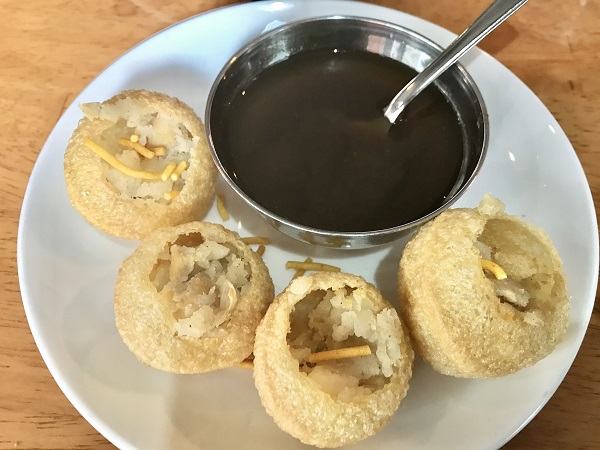
PANI PURI
Menu items of lunch buffet change everyday so you will feel excited to try different dishes every time.
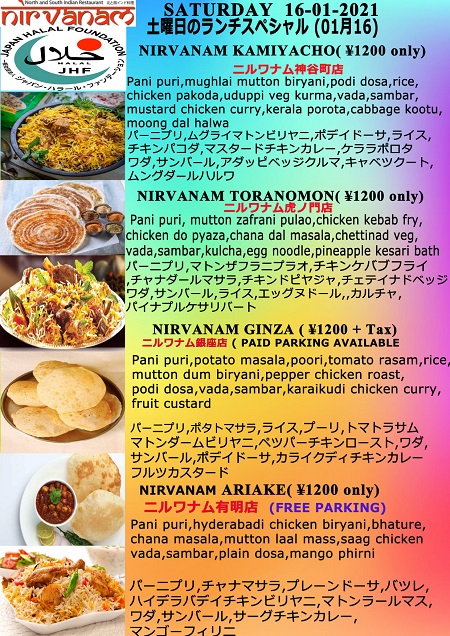
LUNCH MENU
Nirvanam is higly recommended halal restaurant for the best curries by foodies.
Nirvanam has chefs and staff who are from South India. As of 2021, they were recognized with halal certification. Have you ever wonder what the halal certification is? In short, it is a certification by the halal association to meet halal requirements. It may sound a little ambiguous but it is currently the case that there are no regulated global standards and each country and association has the different criteria and education. In Japan, there are such things as menu certification and Muslim friendly certification. Let me explain details as it can be a little complicated to understand.
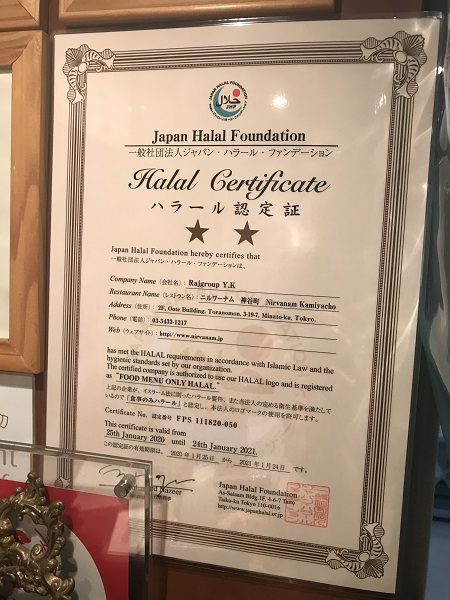
HALAL CERTIFICATE
This certificate shows “all menus are halal.” This certificate is issued by Japan halal foundation, which is categorized into three levels with stars. 3 stars means “all menus are halal” and Nirvanam with 2 stars, offers halal food but they also offer alcoholic drinks such as beers. They need to ensure that food is not contaminated with alcohol as alcohol is prohibited in Muslim culture. The restaurants are required to have strict management system for hygiene and such in order to maintain the halal certification. Some associations call “Muslim friendly certificate,” which has different criteria to the halal certificate. The restaurants with halal certificate tend to charge more for food, Nirvanam offers very authentic food with reasonable price and I would highly recommend!
Supervisor / Recommender

- Halal Supervisor and Foreigner Food Coordinator (Cooking, Consulting, Public Relations)
-
Click here for introduction
I currently work as an editor, but my previous job was as a chef, with many years of experience working in hospitals, restaurants, and the food service industry. Looking back, I think my connection to halal may have already been there.
Decades ago, I once worked in a cafeteria at an auction venue. Over 60% of the visitors were foreigners. Many Muslims were present, and the venue had a mosque-like prayer space. I remember being frequently asked questions about whether the meat was halal and what kind of meat it was. At certain times, the cafeteria would become as lively as a festival. The Indian restaurant next door would generously serve free biryani, curry, and sweet drinks to everyone who came. Over 100 people, including people wearing bright red turbans, galabeyas, and traditional attire, gathered in the cafeteria, all sitting around the same table and enjoying a truly enjoyable time. Looking back, it was iftar, the end of fasting, and I understand the significance of sharing, but at the time I was ignorant of halal and Islam, and didn't even consider how to respond. They only ate the curry made by the Indians in the restaurant. As I studied halal, I realized, "I wanted to eat Japanese food, but I couldn't." I regret not doing anything even though there was something I could have done.
If only it didn't contain pork! If only it didn't contain wheat or buckwheat! I could eat it... Food insecurity is different for each person.
That's why I think it's important to learn about the differences in culture, religion, and lifestyle that underlie it, and to create an environment where everyone can enjoy delicious meals in comfort.
The desire for delicious, safe, and secure food is universal. The times are calling for people to live in new ways that transcend borders and religions. I hope that halal can be a gateway to eliminating food insecurity, contributing even in some small way to a society where people can coexist and prosper with more liberal thinking, and to global harmony beyond.
Latest entries
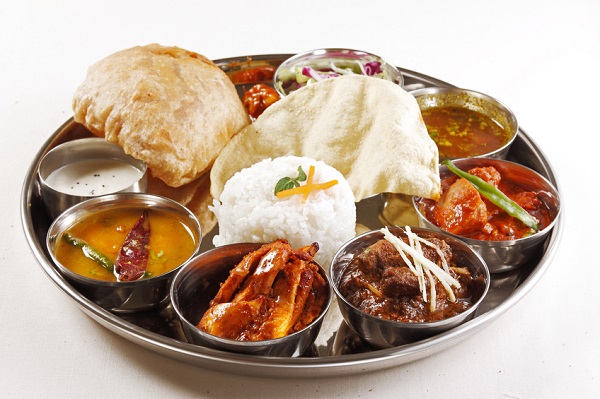 Tokyo2023年11月4日Dakshin South Indian Restaurant Otemachi Branch
Tokyo2023年11月4日Dakshin South Indian Restaurant Otemachi Branch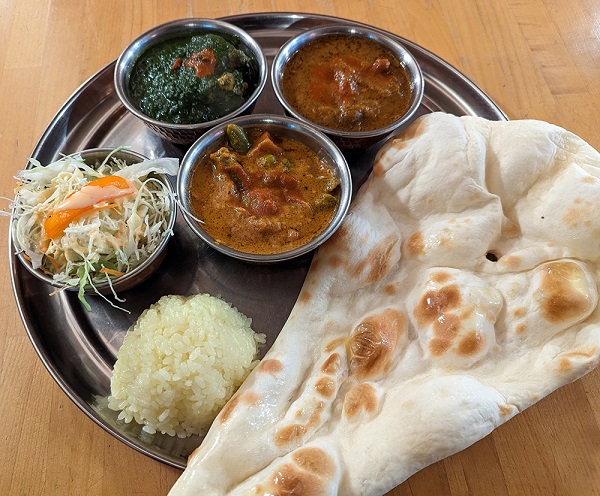 Tokyo2023年10月23日Gandhi Mahal
Tokyo2023年10月23日Gandhi Mahal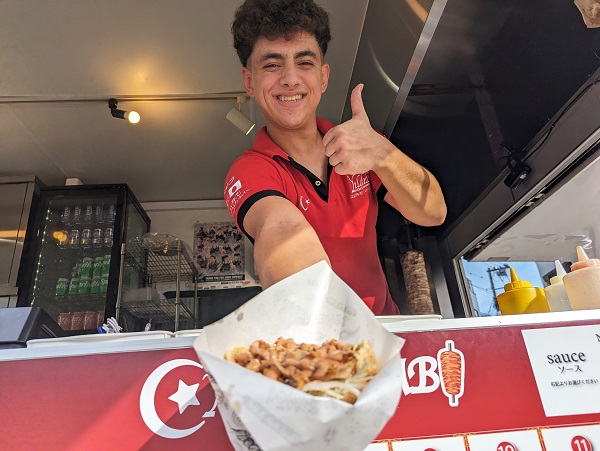 Tokyo2023年10月23日Yıldız KEBAB
Tokyo2023年10月23日Yıldız KEBAB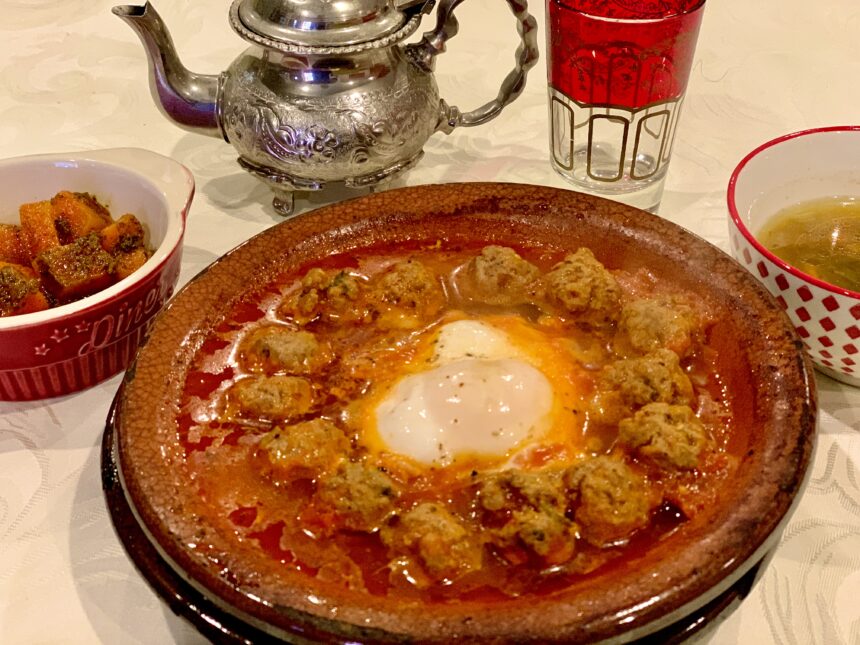 Tokyo2023年10月4日Restaurant Morocco
Tokyo2023年10月4日Restaurant Morocco

